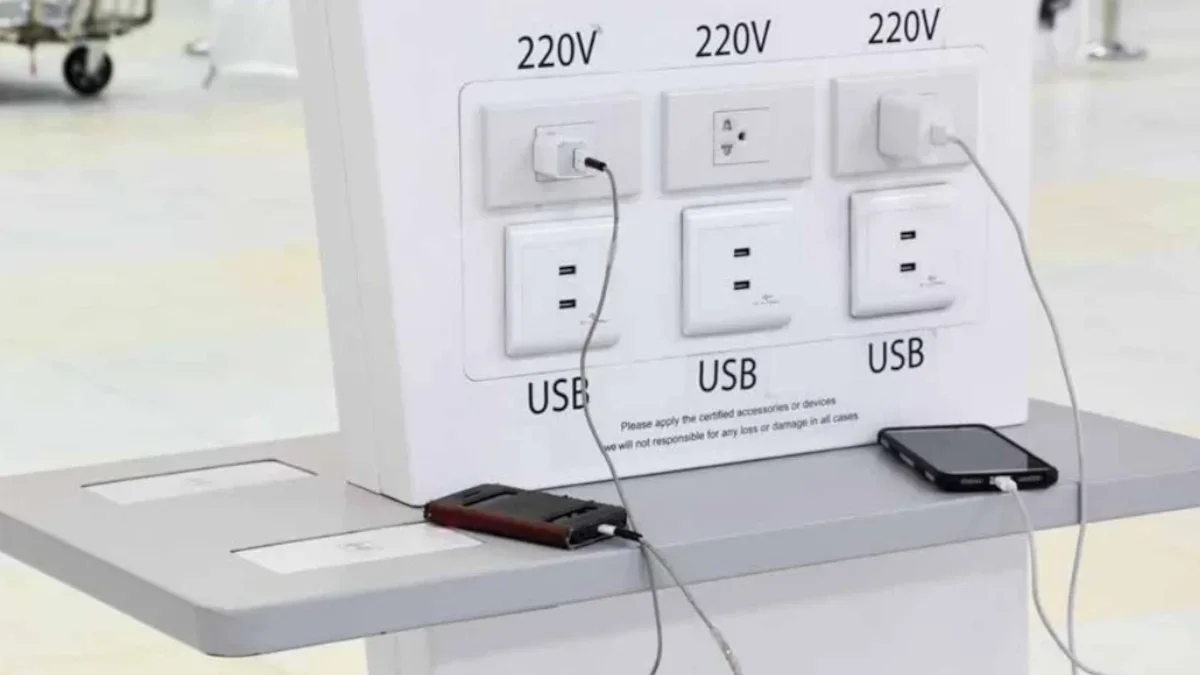On November 5, 2025, the Nigerian Senate advanced the Electric Vehicle Transition and Green Mobility Bill to its second reading, a major step toward regulating and accelerating the country’s shift to electric vehicles. The proposed legislation, sponsored by Senator Orji Uzor Kalu (Abia North), introduces wide-ranging incentives and mandates—alongside steep penalties—that could redefine how vehicles are manufactured, imported, and distributed in Africa’s largest economy.
If passed, Nigeria would join Rwanda and Ethiopia among the few African nations with fully codified electric vehicle (EV) laws. But unlike its peers, Nigeria’s approach emphasises strict oversight, compliance, and local content development, a far more interventionist strategy that analysts describe as both visionary and challenging.
Aiming for local production and industrial growth
At the heart of the bill is an ambitious local content provision requiring foreign automakers to partner with Nigerian assemblers and ensure that by 2030, at least 30% of vehicle components are sourced locally. They must also establish assembly plants within three years of starting operations.
According to the bill, the goal is to stimulate domestic manufacturing, create jobs, and revive a once-thriving automotive industry that has all but collapsed. But industry leaders warn that while the intent is sound, the timeline is tight.
“A 30% local content requirement by 2030 may not be realistic given Nigeria’s current infrastructure and workforce constraints,” said Stanley Awelewa, CEO of Tim International Group, a smart logistics and commercial vehicle services provider. “A ten-year roadmap would be more feasible, giving time for technology transfer and capacity building.”
Dapo Adesina, President of the Electric Mobility Promoters Association of Nigeria (EMPAN), echoed that sentiment, urging the government to adopt “short-, medium-, and long-term goals” that reflect Nigeria’s readiness.
Adesina explained that electric vehicles (EVs) are mechanically simpler than traditional internal combustion engine (ICE) vehicles, with far fewer moving parts. An EV typically comprises three core systems: the electric propulsion system (including the motor, inverter, transmission, and vehicle control unit); the energy storage and management system (comprising the traction battery pack, battery management system, on-board charger, charging port, DC/AC converter, and auxiliary battery); and the vehicle structure and ancillary systems (consisting of the chassis, body panels, enclosures, thermal management system, and regenerative braking components).
“With the discovery of lithium in commercial quantities in some parts of Nigeria, production of batteries can commence in a short time,” Adesina said. “Also, setting the right target will help Nigeria with industrialisation and transfer of skills and technology, thereby leading to growth in the automotive sector.”
‘A Bill 30 years overdue’
Few people grasp the stakes as clearly as Sam Faleye, CEO of SAGLEV, Nigeria’s only large-scale electric vehicle assembler. For Faleye, the new bill is more than a policy proposal; it is a long-overdue course correction.
He explained that many of its provisions draw inspiration from the Nigerian Automotive Industry Development Plan (NAIDP), introduced in 2013 and launched in 2014 to promote local vehicle assembly and manufacturing through tariffs, tax incentives, and investment promotion. However, the NAIDP was a broad industrial framework that did not specifically address environmental goals or the transition to electric mobility.
In contrast, the Electric Vehicle Transition and Green Mobility Bill represents a focused, modern update, one that explicitly targets the EV ecosystem. It introduces clear local content mandates, foreign partnership requirements, tax incentives for EV adoption, and nationwide charging infrastructure plans, all underpinned by environmental sustainability and compliance measures aligned with Nigeria’s climate commitments.
“This bill is at least 30 years overdue,” Faleye told . “In the 1970s, Nigeria had functioning assembly plants—Volkswagen, Peugeot, ANAMCO—all with local component suppliers. Today, we have over 60 licenced manufacturers, but barely six are active. We’re 50 years behind.”
Faleye traced the industry’s decline to policy inconsistency and weak enforcement. Between 600,000 and 700,000 vehicles are imported annually—over 80% of them used—while local plants struggle to produce even 10,000. “It’s a disastrous imbalance,” he said. “Every imported used car drains value from the economy instead of creating jobs or advancing local technology.”
The proposed local content rule, he argued, is essential to reversing that trend. “Countries like Morocco and South Africa grew their auto sectors by insisting on local manufacturing,” Faleye said. “Nigeria can’t remain a dumping ground for used cars while importing jobs that should exist here.”
₦500 million fine: Deterrent or overreach?
Perhaps the bill’s most controversial clause is its ₦500 million penalty per shipment for unlicenced importers. Only registered and certified entities will be allowed to import, assemble, or sell EVs in Nigeria, a measure designed to curb gray-market imports and enforce quality standards.
Critics, however, warn that the fine could discourage startups and small assemblers. “₦500 million is a significant deterrent,” Awelewa said. “It risks stifling innovation before the industry can mature.”
Faleye disagrees. “When you do the math, ₦500 million roughly equals the value of nine or ten vehicles,” he explained. “It’s not punitive; it’s a deterrent. If you can’t meet the licencing and safety requirements, you shouldn’t be importing at all. The idea is to push players to invest locally instead of cutting corners.”
Still, experts caution that enforcement could become complicated, as the bill assigns oversight to multiple agencies, the National Automotive Design and Development Council (NADDC), Standards Organisation of Nigeria (SON), and several ministries. Without coordination, bureaucratic overlap could slow implementation and open room for corruption.
Infrastructure and execution challenges
The bill also mandates every fuel station in Nigeria to install EV charging points once enacted. While transformative in principle, this clause faces significant infrastructure hurdles.
Nigeria’s grid remains unreliable, with frequent power cuts and limited rural coverage. “The bill does not yet outline clear mechanisms for renewable integration,” Adesina said. “Without collaboration between the Ministry of Power and the private sector, charging deployment could lag far behind expectations.”
The requirement that assemblers produce at least 5,000 vehicles annually also raises questions about feasibility. Smaller companies may struggle to meet such thresholds, potentially shrinking the field of players rather than expanding it. Analysts recommend a tiered production target, allowing startups to grow gradually.
Stakeholder inclusion: A missing link
Another point of contention is the lack of stakeholder consultation. Both Awelewa and Adesina claim key industry associations like EMPAN were not formally engaged in drafting the bill.
“We’re now making efforts to reach the sponsor of the bill and the Senate Committee on Industry,” Adesina said. “A collaborative process would make the bill more practical and sustainable.”
Faleye agrees that collaboration is critical but insists that the need for regulation outweighs delays. “We’ve wasted decades on policy paralysis,” he said. “Even if the timelines are aggressive, it’s better to act now and refine later than to keep waiting.”
How Nigeria’s approach differs
Across Africa, Nigeria’s EV bill stands out for its stringent regulatory design. While countries like Kenya and Rwanda emphasise incentives and tax breaks, Nigeria is doubling down on control and local content.
Kenya’s strategy focuses on reducing import duties and VAT, making EVs cheaper and encouraging fleet electrification, especially in public transport. Rwanda, meanwhile, offers full tax exemptions, discounted electricity tariffs, and land grants for charging operators. Starting in 2025, only electric motorbikes will be registered in Kigali.
By contrast, Nigeria’s policy couples incentives with heavy compliance mechanisms and high penalties, signaling a more guarded approach.
Despite these risks, Nigeria’s EV potential remains enormous. With an estimated 15,000–20,000 EVs already on the road and a projected annual growth rate of 30.6% through 2031, demand is rising fast.
Faleye believes the real challenge lies not in consumer appetite but in supply. “We’re already sold out,” he said. “The demand is huge; financing and local assembly capacity are the constraints. In three years, if just 10% of urban dwellers switch to EVs, we’ll need millions of vehicles.”
For him, the bill, however imperfect, is the right step. “This is not a ‘nice-to-have’ policy; it’s survival,” Faleye said. “If Nigeria doesn’t manufacture, we’ll keep importing old cars that do nothing for our economy. The political will must match the ambition.”










